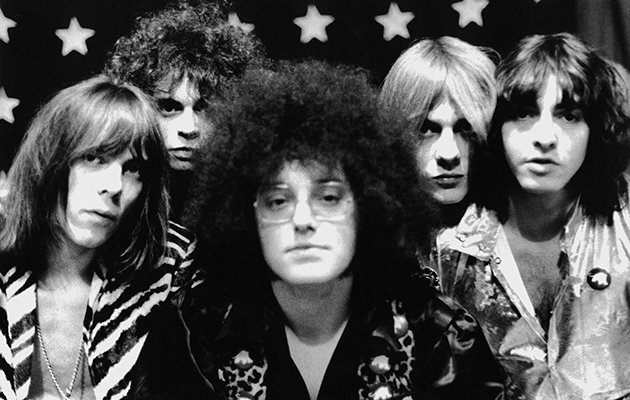Michael Davis (bass): It’s hard to separate recording the song “Kick Out The Jams” with the album, since we did it all at once. We recorded it over two days and I don’t remember much difference between the two days. We had our heads in the clouds. I think we probably thought that we did great, and didn’t really have to change much. Personally, having gotten over the first night jitters, you come back the next night and remember where the rough spots were before and you attack it a little stronger, you feel you’re more confident. We probably came back the second night and played a better show, but I don’t know. Sometimes you think the first stroke you lay down is always the best, then you always try to fix things that you weren’t satisfied with.
The night we recorded “Kick Out The Jams” was actually the end of the band for me. Before that night, the MC5 was totally experimental. Every time we went up onstage, it was like we were making the sound up for the time. It’s a gig, so you never heard it back after we played it, if you follow me. We never really knew how we sounded, so we had greater freedom to experiment more. After October 31, 1968, the MC5 would forever be molded that way because now we knew what we were supposed to sound like. We were like Play-Doh before that, and then we were an actual form after it, and we were expected to be like that from then on. Although we never got any more experimental, we got better musically. We were better musicians, better writers, we were able to make recordings that sounded more professional and more advanced. It’s kind of a bittersweet victory, in a way.
_____________________
Dennis Thompson (drums): The song that gets us in trouble, because of that one word. Here’s a live band – with a live record – that’s being introduced with “fuck” in the liner notes, and “motherfucker” in the single, and yet it’s rising up in the charts on AM radio. The word is considered an obscenity. When we did it in public, the police had an excuse to harass us and throw us in jail. Some gigs we didn’t even go to because we heard the cops were waiting for us. The political right was horrified of us, the political left was never happy that we weren’t revolutionary enough. And the corporations were deathly afraid of us, because we were the real thing.
Did I play any differently that night we recorded “Kick Out The Jams?” Yeah, I played harder than I ever played in my life. I don’t know, it was so intense, like we’d been waiting for that moment to get recorded. We’d played so many places in the couple years prior, and worked at the Grande without much recognition at all. So inside my heart, it was like: “Ow, you know, finally this is it. Making a record, this is what we’ve been doing this for. This is what I dropped out of college for!” I think I broke 10 sticks each performance, at least. I had calluses on all of my fingers, and the forefingers of both hands and the index finger had blood blisters underneath them. They’d break open every time I played. And it was just raw.
I remember both nights were kickass. It was magical, because we knew we had something. I was taking a lot of LSD at the time, and smoking massive quantities of sacrament, as John [Sinclair, MC5 manager] would say. I played high onstage all the time. But it wasn’t the kind of a high like doing heroin or doing coke where you played too fast or it affected the physicality of the show. It was more mental.
But those two nights we just calmed down. We didn’t take the normal quantities that we would take. ‘Let’s just low-key it tonight’, so instead of smoking 15 joints we probably smoked 10. The energy was harnessed.
_____________________
John Sinclair (manager): We did it over two days, October 30 and 31. We didn’t think it was at all strange that we were going to record “Kick Out The Jams” live. We thought it was the way we should do it. Over the years, Wayne has made comments that he didn’t like the way it turned out, but you couldn’t have a more accurate representation of how the band sounded. It was bold to do a live album as a first album, but that was our aesthetic. We were a band that put on a show when nobody put on a show, except for The Who. We cut two nights at the Grande. It was a free concert, so our fans were there. We wanted everybody to enjoy this with us. We felt they brought us there. If it wasn’t for that fucking Lester Bangs, it might have been interpreted in an entirely different way. But what he wrote in the Rolling Stone, claiming it sounded like The Seeds, it kind of poisoned the well. In later years, he’d come up to me in a drunken frenzy and say, “That’s my favourite record of all time.” I’d say, “Well then, thanks for ruining their career. That’s a strange way to show your love, fucking ponk.”
I liked “Kick Out the Jams” then, I like it now. I still get excited when I hear “Now it’s time to…” I like that moment. I always like that moment.



